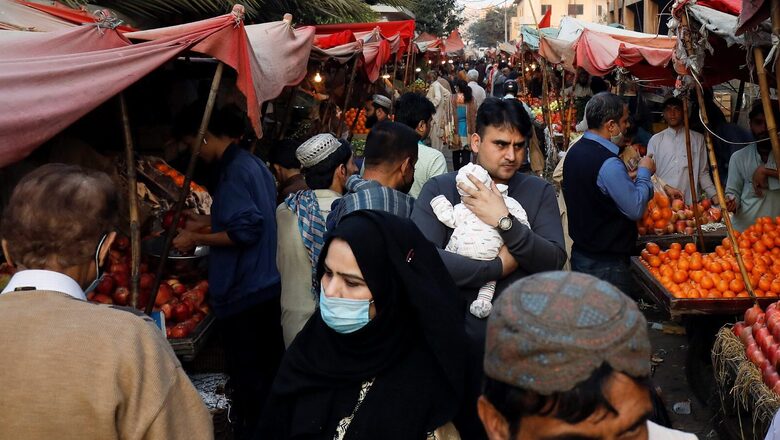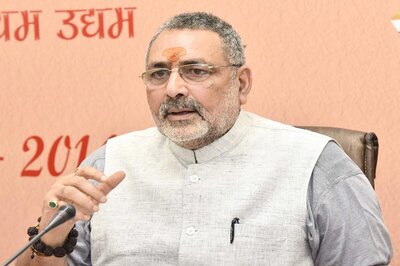
views
The possibility of Pakistan defaulting on its debt is increasing by the day. The foreign exchange reserves are hovering around the $3 billion mark. International rating agencies like Fitch and even Moody’s have downgraded Pakistan to a level in which default is very likely. Inside Pakistan, there is a kind of surreal debate on what default will mean. Some still believe that Pakistan will be rescued at the last moment and default will be avoided, at least for a few weeks, even some months. Others are confident that Pakistan can avoid default by entering into negotiations with debtors on debt restructuring by rescheduling and refinancing the debt.
Those advocating restructuring the debt seem to be under the impression that this is a simple thing. All Pakistan has to do is seek, and it will get it. That restructuring is basically default by another name and its consequences are not much better than that of default is beyond the comprehension of these people. Many of these people are big businessmen who are used to not paying their debt on time, and using their political connections to get the banks to reschedule and even write off their debts. It is precisely this thinking that made Finance Minister Ishaq Dar lobby with the United States (US) to use its influence with the International Monetary Fund (IMF) to go easy on Pakistan. The same thinking guides Pakistanis who are surprised and hurt that ‘friends’ like China, Saudi Arabia and the United Arab Emirates (UAE) are not cutting any slack for them.
The simple fact of the matter is that Pakistan has already defaulted; it just hasn’t announced it officially. It might be able to avoid this announcement if the IMF programme is restored. But even the IMF will not be able to prevent default indefinitely. Hence, the question that many people around the world are asking is: What happens if Pakistan defaults? Will the sky fall? Will default unleash an apocalypse? Some of these dire scenarios are being floated by the Pakistanis in the hope that if nothing else, these will scare the international community enough to keep Pakistan afloat financially. But so far, at least no one is biting the bait. It is almost as if the IMF and Pakistan’s ‘friends’ are calling its bluff and are actually quite blasé about Pakistan defaulting.
So once again, what will happen if Pakistan defaults? Like it or not, countries that default don’t disappear. They don’t cease to exist. They don’t break up, certainly not in neat, clean lines. States can fail, even disintegrate if central authority collapses. But this is a very extreme case, not very likely in the case of Pakistan, certainly not at this stage and probably not even in the medium term. This means that anyone waiting with bated breath to see Pakistan disintegrate needs to pipe down. That isn’t happening right now. If at all, such a possibility becomes real, it is still very far and if it happens, it will be extremely messy. The bottom line is that life will not come to an end because Pakistan defaults; but life definitely becomes horrendously difficult. There will be a lot of unrest caused by economic distress. Violent protests will create a spectre of chaos and anarchy. Law and order will become difficult to maintain. But there will be no revolution.
Pakistanis love to romanticise revolutions. But they have no idea what it means. Nor do they have a stomach for it. The soil of the subcontinent is generally not conducive to revolutions. Even in Sri Lanka, there was an upsurge when people came out on the streets and barged into the Presidential Palace and attacked the houses of politicians. But the entire upsurge fizzled out in a few days. Existential problems – standing in queues for fuel, gas, milk etc. – took precedence over the anger against the politicians and the government. Something similar will happen in Pakistan. It could be a lot more violent because of the proliferation of weapons, but it will not be a revolution. Nor will it lead to an unravelling of the state. Of course, if the Army and other security agencies start to wither away, and the state machinery collapses, then all bets are off. But chances are that the Army will grab power to set things right. President and Chief Martial Law Administrator Gen Asim Munir will call the shots and use strongarm tactics to force people to fall in line. The choice facing the Army is a tough one: it can either grab power to save the state but lose popularity and become a four-letter word for the people or it can keep standing on the sidelines and watch the state fall apart.
On the economic level, the situation will be really dire. There will be total devastation and normal economic activity will be completely disrupted. There will be shortages of everything – fuel, medicines, food, and electricity. Prices will go through the roof. The Rupee will tumble and become virtually worthless. Factories will close, joblessness will increase, and exports (most of them are cotton textiles – almost 60 percent) will fall because production will suffer. Imports of raw materials and machinery will be very difficult because there will be no foreign exchange to pay for them, which in turn means that manufacturing and to an extent, even the services sector, will also come to a grinding halt. Airlines and shipping companies will also stop servicing Pakistan because of payment problems and fuel shortages. The informal economy will, of course, continue to do business and prevent an economic Armageddon. But this is part of the problem and not a solution. The thriving informal economy is in large part responsible for the mess that Pakistan is in. A state which cannot collect taxes cannot survive. This simple fact has always escaped Pakistanis who have taken great pride in the informal economy which doesn’t pay any taxes to the state. Smuggling networks will thrive which will further weaken the state.
The security challenges will be extremely difficult to handle. Even if the Army and security agencies remain intact, their capacity and capability to handle security threats will be severely cramped. Fighting terrorism and insurgency is an expensive business and becomes very difficult with an empty treasury. It becomes an even more daunting task if the population is restive, disgruntled and desperate. Separatism will certainly rear its head because the Pakistani state will just not have the resources to buy or bribe people into submission. The Baloch will definitely sense an opportunity, as will the Pakistani Taliban. A weak Pakistani state will find it difficult to counter these potent movements, even more so, if they collude against their common enemy. In all likelihood, Pakistan will get some support from countries like Saudi Arabia, UAE, China and perhaps the US and the UK and even the European Union (EU). But it will be just enough to prevent the state from collapsing, not enough to pull Pakistan out of the hole in which it finds itself.
The hole that Pakistan has dug for itself is actually an opportunity for the US and its allies to restructure Pakistan and defang it. If Pakistan defaults, it will need debt restructuring which involves really tough negotiations with the debtor nations. This will be an opportunity to get Pakistan to cut the size of its military, eliminate the infrastructure of jihadist terrorism and perhaps, even bring the nuclear weapons programme under the control and supervision of the international community so that this danger to global security is removed. Until Pakistan defaults and undergoes the enormous pain that this will inflict, it is highly unlikely that the country will agree to any of these strategic demands. Whether or not the US and its partners are ready to grab this opportunity to achieve their strategic objectives in Pakistan, which will serve as a force multiplier in the bigger strategic contestation that is looming in the Indo-Pacific, is something that will become clear in the next few weeks and months. Something good, after all, might result from Pakistan’s economic meltdown.
For India, this is an ideal situation. A weak, tottering Pakistan is perfect from an Indian point of view. Its nuisance value will get seriously diminished if it is caught up in an existential crisis. If it takes Pakistan four to five years to recover (and that is being optimistic), this is the time that India can utilise to increase the gap to a point that Pakistan ceases to remain any kind of threat to Indian security. The worst thing India can do is to take any precipitate action against Pakistan at this point. Never disturb an enemy when it is in self-destruct mode. Sit on the sidelines and watch it stew in its own toxic juices.
The only real danger for India is if the state collapses and there are hundreds of thousands of refugees streaming towards India. That is an unlikely scenario at this point in time, but it is a plausible scenario, one which Indian security agencies need to game and prepare for. Other than this, take out the popcorn and watch the ultimate reality show unfolding on the other side of the Radcliffe line.
The author is Senior Fellow, Observer Research Foundation. Views expressed are personal.
Read all the Latest Opinions here




















Comments
0 comment